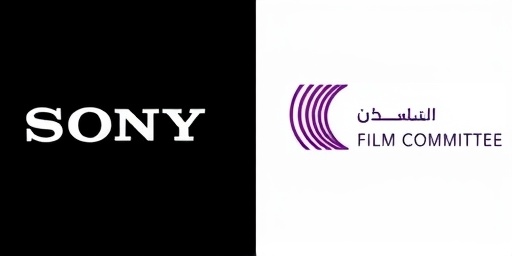In a landmark move set to reshape the global film landscape, Sony Pictures International Productions has inked a multi-year agreement with the Qatar Film Committee to co-finance and co-produce a slate of Arabic-language films. This partnership, announced today, promises to inject fresh energy into the Middle East and North Africa’s burgeoning entertainment industry, bridging Hollywood’s storytelling prowess with the rich cultural narratives of the Arab world.
- Unlocking New Horizons: The Core Elements of the Sony-Qatar Partnership
- Spotlight on Trailblazing Projects: First Films in the Pipeline
- Boosting the MENA Entertainment Ecosystem: Economic and Cultural Ripples
- Voices from the Industry: Reactions and Strategic Insights
- Charting the Future: Expansion Plans and Global Reach
Unlocking New Horizons: The Core Elements of the Sony-Qatar Partnership
The agreement between Sony Pictures and the Qatar Film Committee marks a strategic alliance aimed at fostering authentic Arabic-language films that resonate both locally and internationally. Under the pact, the two entities will collaborate on development, financing, and production, with an initial commitment to produce at least five feature films over the next three years. These projects will span genres from drama and comedy to action thrillers, all scripted and performed primarily in Arabic to capture the nuances of regional dialects and traditions.
Sources close to the deal reveal that Sony Pictures will leverage its extensive distribution network, which spans over 150 countries, to ensure these films reach audiences far beyond the Middle East. Meanwhile, the Qatar Film Committee, backed by the Qatari government’s cultural initiatives, will provide local expertise, talent scouting, and financial support drawn from Qatar’s sovereign wealth fund investments in creative industries. “This is more than a business deal; it’s a cultural exchange that honors the Arab world’s storytelling heritage while introducing it to global screens,” said a spokesperson for the Qatar Film Committee in an official statement.
To put this in perspective, the Middle East and North Africa (MENA) film market is projected to grow at a compound annual growth rate (CAGR) of 7.5% from 2023 to 2030, according to a recent report by PwC’s Global Entertainment & Media Outlook. Currently valued at around $2.5 billion, the sector has been hampered by limited international funding and distribution channels. This Sony-Qatar collaboration could add hundreds of millions in production value, creating jobs for thousands in scriptwriting, directing, acting, and post-production across the region.
One surprising angle here is Sony’s pivot toward non-English content amid a post-pandemic surge in demand for diverse narratives. With streaming platforms like Netflix and Disney+ reporting that international content now accounts for 40% of their viewership hours, Sony is positioning itself as a leader in this shift. The partnership also aligns with Qatar’s Vision 2030, which allocates billions to diversify the economy beyond oil through sectors like entertainment and tourism.
Spotlight on Trailblazing Projects: First Films in the Pipeline
Excitement is building around the initial projects under this Sony Pictures and Qatar Film Committee alliance. The first film slated for production is a historical drama titled Desert Echoes, which chronicles the untold story of a Bedouin tribe’s resilience during the early 20th-century oil boom in the Gulf. Directed by acclaimed Egyptian filmmaker Amr Salama, known for hits like Asmaa, the movie will feature a cast blending regional stars such as Lebanese actor Ali Suliman and Saudi newcomer Layla Al-Mansour.
Budgeted at $15 million—with Sony covering 60% and the Qatar Film Committee the remainder—Desert Echoes is expected to shoot on location in Qatar’s dramatic dunes and Doha studios starting next spring. Producers anticipate a premiere at the 2025 Cannes Film Festival, followed by a wide release in MENA theaters and on Sony’s streaming partners worldwide.
Another key project is a romantic comedy, Veils and Vibes, exploring modern love in a conservative society through the eyes of a young Qatari woman pursuing her dreams in fashion design. This film draws inspiration from successful Arabic comedies like Jordan’s Captains of Za’atari, but with a glossy Hollywood polish. “We’re thrilled to bring stories that reflect the vibrancy of Arab youth culture to a global audience,” noted Sony Pictures International President Steven O’Dell in an exclusive interview. “Arabic-language films have immense untapped potential, and this pact with Qatar will unlock it.”
These selections highlight the partnership’s focus on empowering female directors and writers from the MENA region, with at least 50% of creative roles reserved for local talent. Statistics from the Arab Cinema Center indicate that women make up only 20% of directors in the Arab film industry, a disparity this initiative aims to address through targeted workshops and mentorship programs funded by the collaboration.
Boosting the MENA Entertainment Ecosystem: Economic and Cultural Ripples
The Sony Pictures and Qatar Film Committee deal is poised to catalyze a renaissance in the MENA entertainment sector, long overshadowed by Bollywood and Hollywood imports. In countries like Egypt, once the Arab world’s film capital with Cairo’s studios producing over 100 movies annually in the 1950s, production has dwindled to fewer than 50 features per year due to funding shortages and piracy issues. This partnership injects much-needed capital and expertise, potentially reviving studios and training facilities.
Economically, the impact could be profound. A study by the World Bank estimates that every $1 million invested in film production generates $2.5 million in related economic activity, including tourism and merchandise. For Qatar, hosting shoots could attract international crews, mirroring how Morocco’s film incentives drew $100 million in foreign spending in 2022 alone. Broader MENA benefits include job creation: the deal is expected to employ over 5,000 workers in the first phase, from set designers in the UAE to VFX artists in Lebanon.
Culturally, Arabic-language films under this banner will challenge stereotypes, showcasing diverse Arab experiences—from urban life in Riyadh to rural traditions in Yemen. Industry experts like Dr. Fatima Al-Khalifa, a film scholar at Qatar University, praise the move: “This isn’t just about entertainment; it’s about representation. Sony’s involvement ensures these stories break through language barriers, fostering empathy and understanding worldwide.” Her words underscore the emotional resonance of narratives that have historically been marginalized.
Moreover, the partnership addresses piracy, a scourge costing the MENA film industry $1.2 billion annually per IFPI data. By combining Sony’s anti-piracy tech with Qatar’s regulatory framework, the duo plans to implement robust digital rights management, ensuring creators are fairly compensated and encouraging more investment.
Voices from the Industry: Reactions and Strategic Insights
Stakeholders across the film industry are buzzing about the Sony Pictures-Qatar Film Committee announcement, viewing it as a game-changer for Arabic-language cinema. At the recent Doha Film Festival, where whispers of the deal first surfaced, producers lauded the initiative for democratizing access to high-budget productions. “Finally, Arab stories get the blockbuster treatment they deserve,” enthused Jordanian producer Rula Salameh, whose firm has partnered on early development.
Sony executives emphasize the strategic fit. With the global film market recovering to $100 billion in 2023 after COVID disruptions, as per Motion Picture Association stats, diversifying into emerging markets like MENA is key. Sony’s past successes with international co-productions, such as the Oscar-winning Parasite distribution, inform this approach. “We’re not colonizing narratives; we’re co-creating them,” clarified O’Dell, highlighting joint creative control clauses in the agreement.
Critics, however, raise nuanced concerns. Some worry about Western influence diluting authentic voices, but safeguards like mandatory local majority ownership in scripts mitigate this. Egyptian director Youssef Chahine’s legacy of blending cultures offers a positive precedent. On the flip side, streaming giants are watching closely; Netflix’s $500 million annual spend on Arabic content could face stiffer competition.
Panel discussions at the upcoming Red Sea International Film Festival will dissect these dynamics, with Sony and Qatar representatives leading sessions on sustainable co-productions. Quotes from festival director Mohammed Al Qahtani: “This pact elevates the entire region’s entertainment profile, drawing talent and tourists alike.”
Charting the Future: Expansion Plans and Global Reach
Looking ahead, the Sony Pictures and Qatar Film Committee partnership is just the beginning of a broader vision to expand Arabic-language films into mainstream global entertainment. Phase two of the agreement, set for 2026, includes TV series and documentaries, potentially co-produced with platforms like Amazon Prime. This could tap into the $50 billion MENA streaming market, forecasted to double by 2028 per Statista.
Training initiatives form a cornerstone: a joint academy in Doha will train 500 aspiring filmmakers annually, focusing on digital tools and international standards. Collaborations with film schools in the US and Europe will facilitate exchanges, building a skilled workforce for the film industry.
Globally, distribution strategies aim for multiplexes in Europe and Asia, where Arab diaspora communities number over 20 million. Marketing campaigns will leverage social media, with TikTok and Instagram reels teasing trailers to engage Gen Z audiences. Success metrics include box office hauls exceeding $50 million per film and festival accolades, paving the way for sequels and franchises.
Ultimately, this alliance signals a maturing MENA entertainment sector, where local stories gain parity with Western blockbusters. As Qatar invests in its post-oil future and Sony diversifies its portfolio, the ripple effects could inspire similar pacts across the Gulf, from UAE’s Image Nation to Saudi Arabia’s burgeoning film scene. The stage is set for Arabic-language films to captivate the world, one compelling narrative at a time.








